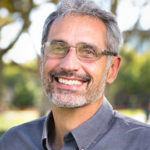About The Call to Follow
A Conversation with Rick Langer and Joanne Jung
Every Voice: What led you to write this book? What problem or issue(s) are you seeking to address?
RL&JJ: Our culture is obsessed with leadership. It promotes leadership everywhere—sports teams and clubs for elementary-aged children, campus clubs for junior high students and high schoolers, degree programs for college students, and more. Professional schools, whether in business, law, medicine, or theology, all offer extensive training in leadership. Followership, in contrast, is almost completely ignored. We talk about a call to leadership but never a call to followership. We have little or no imagination for the gifts or skills of followership. Have you ever attended a followership training workshop? Didn’t think so…
EV: What is the thesis of your book?
RL&JJ: We believe followership is something in its own right, not just the lack of leadership. We believe it is worth studying for its own sake. It has its own set of skills and excellencies; it has its own challenges and rewards. One can follow well and one can follow poorly. Furthermore, the first call of every Christian is to be a follower (of Christ, but also of those who have walked the road of discipleship before you). We should take that call seriously.
EV: Who’s your target audience, and what are you most hoping they hear from it?
RL&JJ: This book is written for disciples—those who see their first task as following Christ (and those that should). Whether they are leaders or followers within any given organization is a secondary matter to their primary calling of being a follower of Christ. One of the special audiences we wrote for is those who are called to serve in ordinary, even mundane jobs (at least jobs that are mundane in the imagination of our popular culture). Our hope is to cast a vision for what faithful discipleship really looks like in non-glamorous daily life.
EV: Did you have any “aha” moments while writing the book?
RL&JJ: Yes indeed! For me (Rick), our study in chapter three was truly surprising. We started out just wanting to unpack the followership language that pervades the New Testament, but I was really stunned by my study of the book of John. Jesus relentlessly describes himself as a follower, not a leader. To quote from a paragraph in the book that summarizes these thoughts: “…Jesus didn’t engage in following as a preliminary training activity—following was not a spiritual discipline like fasting or meditation. His fundamental self-presentation to his disciples was as a follower at any and every moment. It wasn’t one of his many tasks, it was his defining task. And, importantly for us, his guiding passion appears to be that his disciples imitate him on exactly this point. Our master is a follower, so we are to become followers as well.”
I (Joanne), too, was struck by the thoughts of Jesus as a follower. It had been in my thoughts for a while. I even hesitated mentioning it to Rick. I just wasn’t sure. I didn’t want to “diminish” the work of Jesus. It felt new and it kept crossing my mind. God does that doesn’t he. When I brought it to Rick, he took the thought and ran with it in amazing ways.
EV: What was the most challenging aspect of writing the book?
RL&JJ: One of the constant challenges of the book was writing it in a way that corrected what we called an obsession with leadership, but did not diminish or cast doubt on the value of leadership. We didn’t want to say leadership is a bad thing; we believe it is actually a good thing. We just believe followership is a good thing too, and its goodness has been sorely neglected in modern American culture.
EV: If your book was made into a movie, what actor/actress would play the lead role?
RL&JJ: Tough one. Our whole point is that the kinds of things we talk about–following faithfully in ordinary life–are the exact kinds of things a leadership obsessed culture would never make a movie about!
That said, the person who comes to mind for me is Tom Hanks. One of the things Tom Hanks has done remarkably well is to portray ordinary people in a truly compelling fashion. He doesn’t do superheroes or Bourne Identity spies or assassins. Rather, he has done Castaway. It is a story about a Fed Ex man who gets trapped on a desert island as a result of an airplane crash. He washes ashore, scrapes by day-by-day, perseveres, and ultimately gets himself rescued. The first thing he does after this miraculous rescue is simply to deliver the package that he was on the plane to deliver in the first place! He doesn’t even kill any aliens in the process!
Likewise, Hanks’ portrayal of a lonely widower in A Man Called Otto—he was cranky and considering ending his life, but he somehow just couldn’t keep himself from caring for his neighbor. Next thing you know, that simple care has saved both his neighbor and himself. Similar things might be said about the roles he plays in Saving Private Ryan (pulled off the front lines to get a message to a private whose brothers have been killed) and even Forrest Gump. He opens our eyes to the meaning and significance of lives that are often overlooked.
EV: What kind of seminary/church classes should assign your book?
RL&JJ: Interestingly enough, one of the first places I think of is in leadership classes—the book is all about leading as a follower and also the importance of a healthy relationship between leaders and followers. Also, classes on discipleship and spiritual formation. Finally, any class that deals with work, calling and vocation would also be an excellent place to use this book.
About the Authors




Rick Langer (PhD, University of California, Riverside) is Director of the Office for the Integration of Faith and Learning and Professor of Theology at Biola University.
Joanne Jung (PhD, Fuller Theological Seminary) is Associate Dean of Online Education and Faculty Development and Professor of Biblical and Theological Studies at Biola University.

